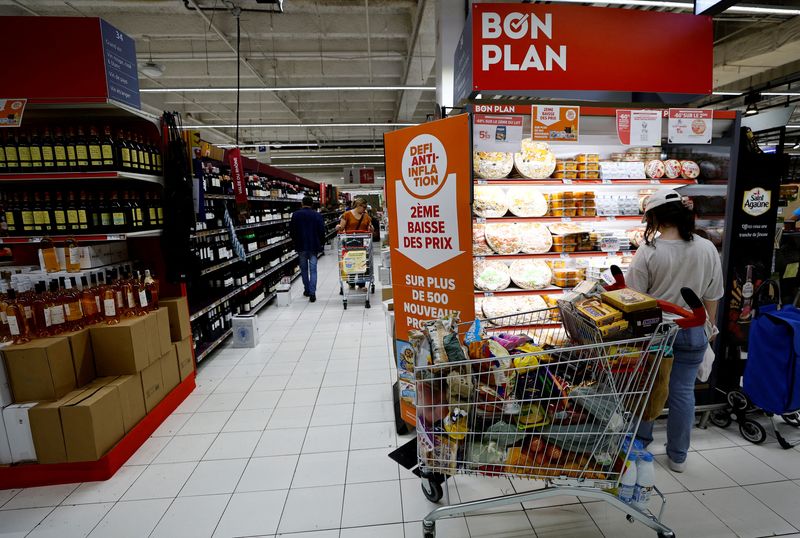PARIS (Reuters) -The charity Restos du Coeur, famous in France for its soup kitchens and food parcels, has warned that steep inflation will hamper its aid efforts and urged the government to do more.
Food inflation is a hot topic in France, where, though easing for the fifth consecutive month from a peak earlier this year, it is still running at 11.1%, nearly twice the overall inflation rate, increasing costs for the food aid charity.
"Inflation has reached a degree of violence that is unheard of," Restos du Coeur president Patrice Douret told TF1 TV on Sunday. "We must act before it's too late."
The Restos du Coeur (Restaurants of the Heart), whose aid campaigns run from November to October each year, expects to have handed out 170 million meals in 2022-2023, up from around 140 million the previous year.
But it reckons it may need to reduce the number of people it helps by around 150,000 in its new annual food aid campaign starting in November.
"Because of inflation... we are going to have to take very difficult measures and significantly reduce the number of people we are going to welcome," Douret said. "And the people we are going to welcome, we will have to give them fewer products."
With more people asking for help and costs shooting up, the charity itself could be forced to shut down in the coming years, Douret said.
His call prompted the government to pledge 15 million euros to the charity, which said the donation was not enough to bring it back in the black.
The family of Bernard Arnault, chairman and CEO of French luxury group LVMH said on Monday it would also contribute to the association and pledged 10 million euros.
The government needs to do more tackle the root causes of poverty, Restos du Coeur spokesman Yves Merillon told franceinfo radio.

Retailers and consumer goods companies are trading blame over who is responsible for the increase in prices on supermarkets' shelves even as the cost of raw materials has been falling in recent months.
France's Finance Minister Bruno Le Maire said last week that annual price negotiations - initially planned for next year - would be brought forward, with a view to having price cuts from January.